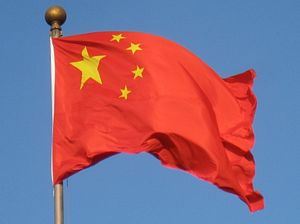On December 1, 2020, China’s Export Control Law officially took effect. The NPC Observer, a site dedicated to tracking China’s legislative processes, described the law as “China’s first omnibus national legislation on export controls,” and as such it has the potential to reshape China’s trade with the world. In particular, it offers another tool for the Chinese Communist Party to use economic relations to advance national interests.
(An unofficial English translation is available here, courtesy of the international law firm Covington & Burling LLP; all quotes from the law use this translation.)
The first draft and a call for public comments appeared in June 2017; the final version was passed by the National People’s Congress Standing Committee on October 17, 2020. When asked about the new law in a press conference on October 22, Chinese Commerce Ministry spokesperson Gao Feng said that the law was meant “to better carry out international obligations, meet the requirements of export control under new circumstances, and protect China’s national security and interests.” Gao also pointed out that the law is not entirely new, but a “higher-level” and more comprehensive update to existing regulations “for the control of nuclear, biological, chemical, missile, and military export[s].”
The law is to be administered by the “State Export Control Administrative Departments” of both the State Council (China’s top governmental body) and the Central Military Commission (the top authority over China’s military, the People’s Liberation Army), to which companies will have to apply for licenses if they want to export restricted goods and services.
Notably, the crucial export control list has not been published yet, even though the law is technically in effect as of December 1. When pressed, Gao would only say that authorities “will release it at a proper time in accordance with the law.” However, the law provides for export controls on even products and services that don’t make their way onto the eventual control list. The law reserves the right to restrict items not on the control list if the exporter “is or should have been aware” of potential risks to China’s national security or national interests. The government can also restrict exports of items not on the list for up to two years using “temporary” export controls.
In the law, export controls are defined as applying to “dual-use items, military items, nuclear items and other goods, technologies, services and items relating to the maintenance of national security and national interests, and performance of anti-proliferation and other international obligations.” The vague mention of exports related to “national security and national interests” raises the potential for broad application. Already, earlier this year the Chinese government moved to block Chinese company ByteDance from ceding control of the algorithm used to run its popular TikTok app as the Trump administration sought to force a sale as a condition of allowing TikTok to continue to operate in the United States. Sharing the algorithm was deemed a threat to China’s national interests.
As an analysis from DLA Piper notes, the phrase “national security” alone appeared in previous drafts. The addition of “national interests” “provides an explicit basis for export control measures designed to advance foreign policy or industrial policy goals unrelated to conventional defense and security risks.” That, combined with placing the onus on exporters to decide if even unlisted products and services require an export license, adds up to a potential minefield for companies.
And, as a report from the U.S. Congressional Research Service pointed out, the law allows for the granting of export licenses to be based on “not only the particular technology, end use, and end user, but also an entity’s ‘social credit’ rating.” That effectively provides another legal tool for the Chinese Communist Party another tool to coerce businesses’ compliance with Party ideology and end goals.
Of particular note from a geopolitical perspective, the Export Control Law explicitly mentions striking back at other countries’ own export control tactics in article 48: “If any country or region abuses export control measures to endanger the national security and national interests of the People’s Republic of China, the People’s Republic of China may, based on the actual situation, take reciprocal measures against that country or region.” And the law provides for extraterritorial reach as well, meaning China could seek to use the new law to retaliate against U.S. firms for trade restrictions imposed on Chinese companies by the U.S. government.
Under the Trump administration, the Commerce Department’s “Entity List” has been used more and more frequently as a weapon in the trade war with China. The Entity List restricts U.S. companies from selling products and services to certain buyers. The Commerce Department added Huawei to the list in May 2019; since then a spate of Chinese companies have been added for their ties to the Chinese military and alleged association with human rights violations in Xinjiang. Currently, the Entity List includes over 250 Chinese companies – not counting foreign subsidiaries established abroad.

































